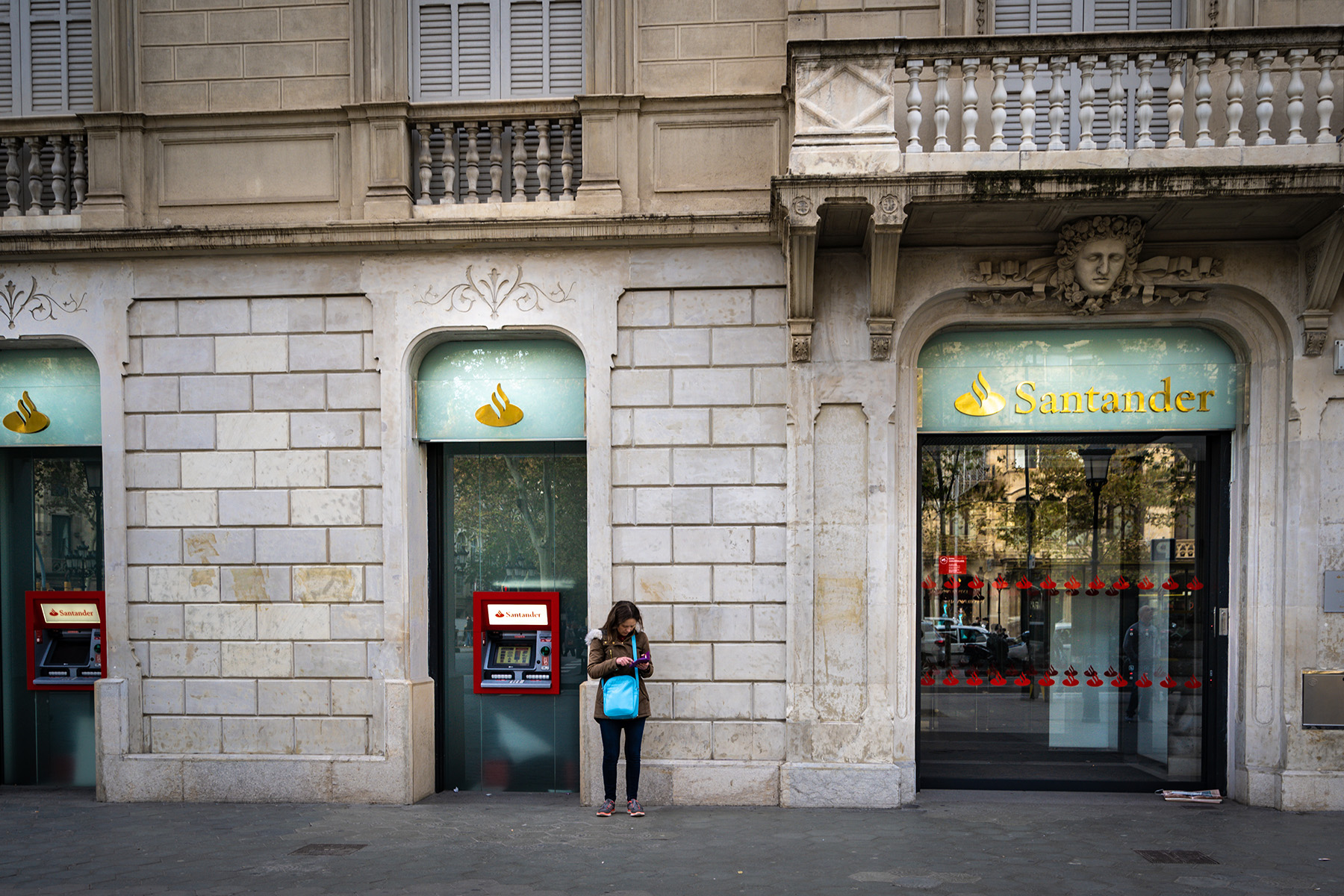If you are moving to Spain and are considering investing in the country, you’ll be glad to know there are a variety of options available. From buying property to stocks and shares. However, you will need to do your research, rules and tax implications can differ from those in your home country. Before you invest in Spain, it’s worth getting a good understanding of the topics covered below:
- Investment in Spain
- Savings account investments in Spain
- Pension investments in Spain
- Property investments in Spain
- Business investments in Spain
- Investment funds in Spain
- Buying stocks and shares
- Ethical and sustainable investments in Spain
- Other ways to invest in Spain
- Tax on investments in Spain
- How to invest wisely
- Investment advice in Spain
- Useful resources
Talenom
Are you looking for legal or financial advice on moving to Spain? Talenom’s team of lawyers, economists, real estate professionals, relocation specialists, and accountants are ready to help you with your investments and business in Spain. Get in touch with Talenom and make your move to Spain a success.
Investment in Spain
Prior to COVID 19, Spain experienced an economic resurgence. Its economy had been hard hit by the financial crash of 2008. The country boasts some of the most popular tourist destinations in Europe, giving the economy a lift. House prices are rising and sustainability is becoming more of a focus. In addition, as a member of the European Union (EU) Spain has a post-COVID economic recovery plan backed by the EU.

Major bank Santander says Spain’s strengths include its developed infrastructure, important tourism sector, diversified economy, and high quality of life. On the other hand, the country also has high unemployment, high indebtedness, and a complex regulatory system.
Spain ranked 30th out of 190 countries in World Bank’s 2020 Doing Business report, with high rankings for cross-border trading and paying taxes, but below-par scores for getting credit and starting a business.
In terms of savings and investment culture, the pandemic had a marked impact. In 2020, Spanish households had a savings rate of 14.2% of their disposable income. The savings rate in previous years was much lower, however. Pandemic lockdowns led to reduced consumer spending around the globe. Savings fever gripped Spain. The volume of bank deposits increased by €20 billion in March-April 2020. That’s equal to 1.6% of Spain’s GDP in 2019, notes CaixaBank.
Despite these difficulties, investment in Spain can also be a route to gaining residency and later, permanent residence and citizenship.
Savings account investments in Spain
You can get a savings account in Spain (cuenta de ahorro) at a national or regional bank (cajas), though many regional savings banks have either closed or merged with bigger providers since the financial crisis.
You can put cash away and gain interest with a savings account. However, your money could be better invested elsewhere. This is because most banks in Spain currently pay very little interest (if any at all) on savings. For example, some providers only offer token rates such as 0.01%. To get a higher rate, you might need to deposit a specific amount each month or lock up your savings for a fixed time. Some providers also offer specific savings accounts for younger people or parents saving toward their child’s future.
Pension investments in Spain
The Spanish pension system has three pillars – the state pension, company pensions, and private pensions.
The state pension is available to residents who’ve made at least 15 years of social security contributions. To qualify for the full state pension, you’ll usually need to have made 37 years of contributions. The pension is payable at Spain’s retirement age of 65 years and 10 months.
Occupational pensions in Spain are most commonly available with larger and international employers. Defined contribution schemes have become more commonplace in recent years. These schemes require both the employer and employee to make contributions. Then there are defined benefit pensions, which the employer funds exclusively.
The third pillar is the private pension system. Private pensions offer you the opportunity to put away extra money to supplement your income in retirement. These types of pensions aren’t compulsory and are usually offered by banks and insurance companies. It’s worth doing a financial review with accredited advisors. This allows you to get a good sense of your pension and investment needs before taking any big leaps. You can our directory for listings of financial advisors in Spain.
Property investments in Spain
Investing in property in Spain might seem like a good way to grow your money. However, there are some rules you’ll need to be aware of.
If you plan to buy property in Spain to live in, you will not face any restrictions. However, keep in mind that rules on who can buy investment properties differ from region to region. For example, in the Balearic Islands, only Spanish residents can purchase buy-to-let properties. In March 2022, the Balearic government also started investigating how it could limit the purchase of second homes by foreigners. Madrid, meanwhile, has introduced rules limiting how many days you are allowed to rent out your holiday home if you are foreign.
With regulations subject to change across the country, it’s important to seek local advice before making a purchase. Most of the larger Spanish banks offer mortgages to non-residents, most notably Santander, Banco Bilbao Vizcaya Argentaria (BBVA), and CaixaBank. You can also secure a mortgage through an international bank.

House prices in Spain are on the rise, having grown by 6.4% year-on-year by the end of 2021. New-build homes rose in value by 6.1%, while existing homes grew by 6.4% compared to the previous year. Given the impact of the pandemic on property markets around the world, keep in mind that these figures could fluctuate.
If you’re thinking of buying an investment property in Spain, you’ll need to do your research on both the likely yields and the additional costs of buying and setting up the property. Purchase costs vary around the country. You’ll generally need to pay a property transfer tax, legal fees, and land registration fees. Transfer tax ranges between 6% to 10% of either the land registry value (reference value) or the purchase price, whichever is greater.
Home insurance to protect your investment
If you do buy a property in Spain, you are going to want to factor in home insurance. There are generally two types of home insurance (seguro de hogar) in Spain:
- Contents insurance (seguro de contenido), sometimes known as renters/tenants insurance, protects all movable assets such as furniture and valuables.
- Building insurance (seguro de construcción) covers the fixed property including walls, floors, ceilings, and any internal fixtures.
Neither contents nor building insurance is mandatory in Spain, although they are recommended. You can usually buy them as a combined package, often just called home insurance. Most forms of home insurance in Spain typically include liability insurance coverage. If not, you can usually add this on as an extra.
Spanish home insurance companies
There are many insurers to choose from in Spain. However, be sure to do your research and ensure you get the right coverage for your home. Insurers offering home coverage in Spain include:
- Allianz
- Caser
- Liberty
- Linea Directa
- Luko
- Mutua Madrilena
Many Spanish banks also sell insurance products, including home insurance deals, so it pays to shop around. For more help in choosing the right coverage, visit a comparison website such as Acierto.
Business investments in Spain
Spain’s economy is tourism, manufacturing, agriculture, and energy reliant. As Spain’s economy recovers from the pandemic, the OECD predicts GDP will grow by 5.5% in 2022 and 3.8% in 2023. The gradual pick-up of the tourism industry is to drive growth post-COVID 19.
Spain is a diverse country, and you’ll find that business culture varies depending on where you’re living. Likewise, the rules around starting a business in Spain depend on where you’re from and the type of business you’re setting up. For example, if you’re an EU citizen setting up as a sole trader or partnership, you won’t need to adhere to minimum investment rules and the process should be relatively straightforward. Non-EU citizens will first need a Spanish visa and a valid work permit.
Keep in mind that setting up a limited company is more complicated and expensive. Several types of structures are available and there is a range of tax and accounting rules you’ll need to adhere to.
Investment funds in Spain
Investment funds allow you to buy shares in a range of companies at once. Funds are sometimes grouped by the types of companies they include (e.g., corporate bonds or ethical companies).
A fund manager picks which investments to add and remove from the fund on your behalf. The manager oversees the fund intending to hit a specific target. For example, tracking inflation or outperforming the market. This means the amount of risk involved can vary depending on the type of fund you choose and its goals.
Large banks and individual fund managers operate funds in Spain. Some of the main players include Spain’s biggest financial institutions, such as Santander, BBVA, and CaixaBank. These providers tend to offer a range of different funds to suit different appetites. For example, Santander provides everything from medium-low risk funds to aggressive risk funds. The Bank of Spain (Banco de España) provides a full list of regulated funds. Of course, all actively managed funds charge fees. Shop around and compare performance against fees over a few years.
Buying stocks and shares
When you buy stocks or shares, you’ll be investing in the future success of a company. Investing in shares has become easier in the last few years. Online investment platforms enable you to buy and sell shares in lots of different companies and keep them in one place.
Investing in shares directly comes with greater risk than investing in funds picked by an expert, especially if you’re a novice. You can buy or sell stocks and shares whenever you want, but the stock market can be volatile, and an investment that performed well last month may not necessarily do so this month. Fees for trading shares can eat into your profits, so make sure you do your research and consider taking advice from an expert.

The shares of Spain’s biggest companies are traded on the Madrid Stock Exchange (Bolsa de Madrid), which has been operating since 1831. The benchmark index is the IBEX 35. This tracks the 35 biggest companies on the stock exchange. The IBEX 35 has had quite an erratic performance in recent years. For example, it rose 21% in 2014 and dropped 15% in 2020.
You can invest in Spain through the stock market from anywhere in the world.
Ethical and sustainable investments in Spain
Ethical and sustainable investing in Spain is growing in popularity, with investors increasingly taking an active interest in the types of companies they’re putting their money into.
In 2019, Spain became a member of the Global Steering Group on Impact Investing (GSG). Data from the Spain National Advisory Board on Impact Investment showed that the amount of money held in the impact investment market rose by 26% in 2020, and the industry expects to ‘continue growing at a rapid rate’. The research found that nearly 50% of investors said the environment was one of their main focuses.

In September 2021, the Spanish Treasury launched a green bond, making it the 11th member state of the EU to join the green bond market. Spain’s green bond raised €5 billion for the country’s plan to fund projects to mitigate climate change. As a result of these plans and trends, there are a variety of options for impact investors in Spain.
Other ways to invest in Spain
In addition to the more traditional investments above, there are lots of other ways of investing your money in Spain. Think of markets such as gold, wine, and art. In recent years, cryptocurrency has also been on the rise across the world. As ever, it pays to be cautious.
If you’re considering one of these types of investment, it’s especially important to do your research and be wary of the possibility of falling victim to a scam. Be warned: scammers tend to target these less well-regulated investment types through social media and search engine adverts.
Tax on investments in Spain
If you make money on your investments, you might need to pay tax on the income. Capital gains tax is payable on the sale of properties and other investments such as dividends or interest from bank accounts. You pay capital gains tax as follows:
- First €6,000: 19%
- €6,000–€50,000: 21%
- €50,000–€200,000: 23%
- more than €200,000: 26%
Capital gains tax doesn’t apply if you are selling your main home (if you’re over the age of 65) or if you are selling your main home to buy another one (if you’re under the age of 65). You pay tax on your rental income in line with your personal tax bracket, not capital gains tax rates.
Spain also charges a wealth tax, which is payable by the country’s richest residents. The exact percentage you’ll need to pay varies depending on where you live, but the current rules mean that people with assets valued at more than €10 million can be taxed at up to 3.5% each year.
How to invest wisely
It’s important to get to grips with the various rules and tax considerations before investing in Spain. If you’re new to the game, consider low-volatility and low-risk investments until you’ve fully got to grips with the system. For example, the costs of buying and selling shares too often can quickly wipe out your profits, so you may be wiser to consider lower-risk investment funds while you’re still learning.

Think carefully about the best strategy for you. For example, are you investing for income or with long-term growth in mind? Our guide to investing as a hobby offers tips for those getting started. Or, if you’ve got a lump sum to invest and are wondering how to grow your money, our guide to investing money abroad can help.
Investment advice in Spain
Before investing money, consider taking advice from an expert who specializes in investments in Spain, like Talenom.
Our directory of financial advisors in Spain is a good starting point. Financial advisors are regulated by the National Securities Market Commission (Comisión Nacional del Mercado de Valores – CNMV). Advisors need to be authorized by either the CNMV or the Bank of Spain.
Useful resources
- Madrid Stock Exchange – for frequently asked questions on share trading
- CNMV portal – for checking registration details of financial advisors
- OECD – for an Economic Forecast Summary for Spain











